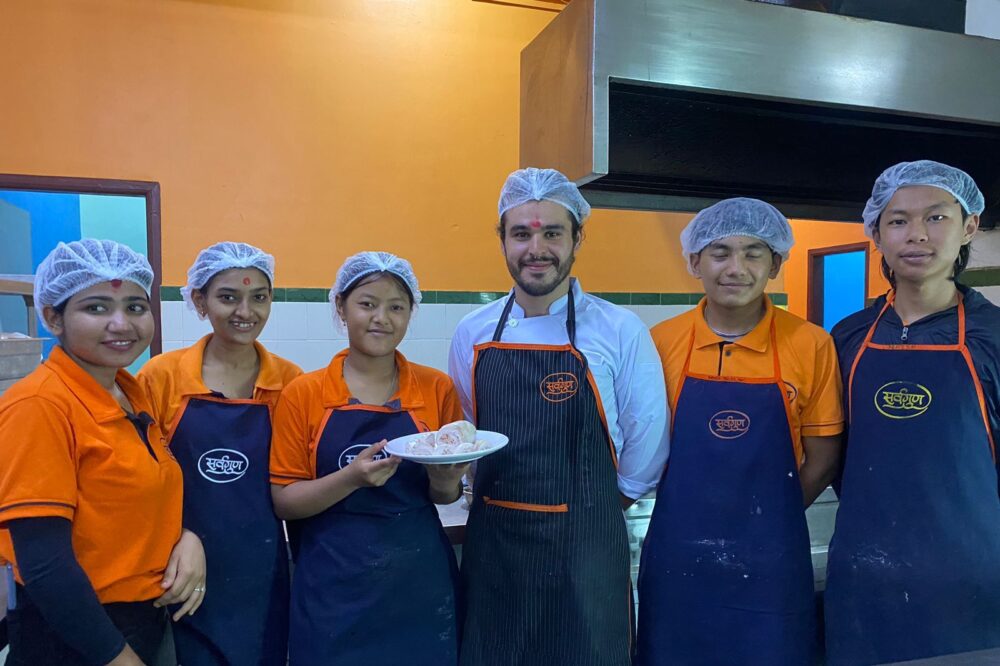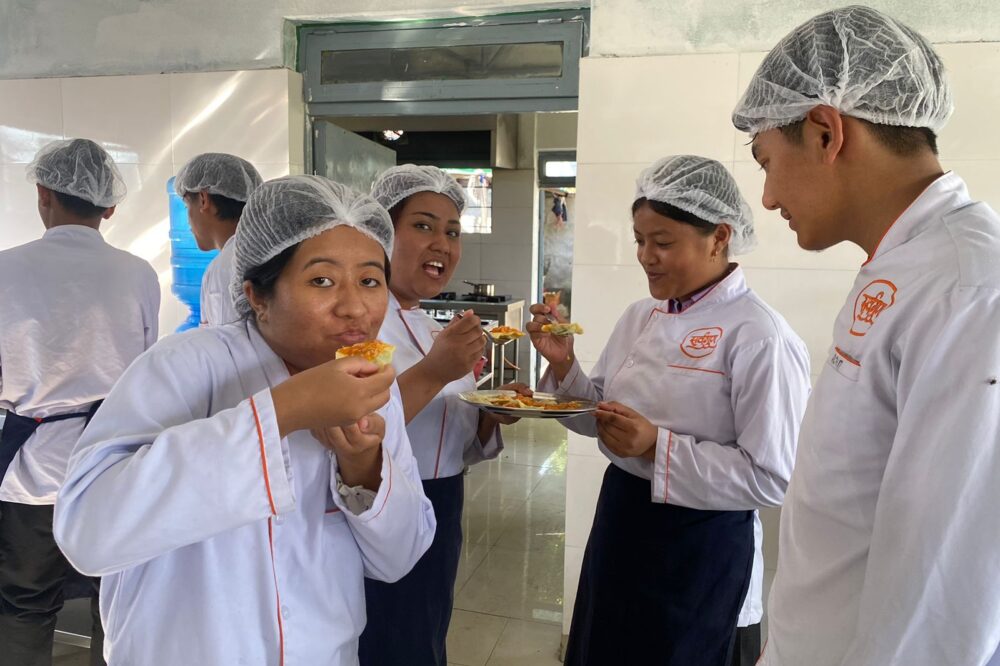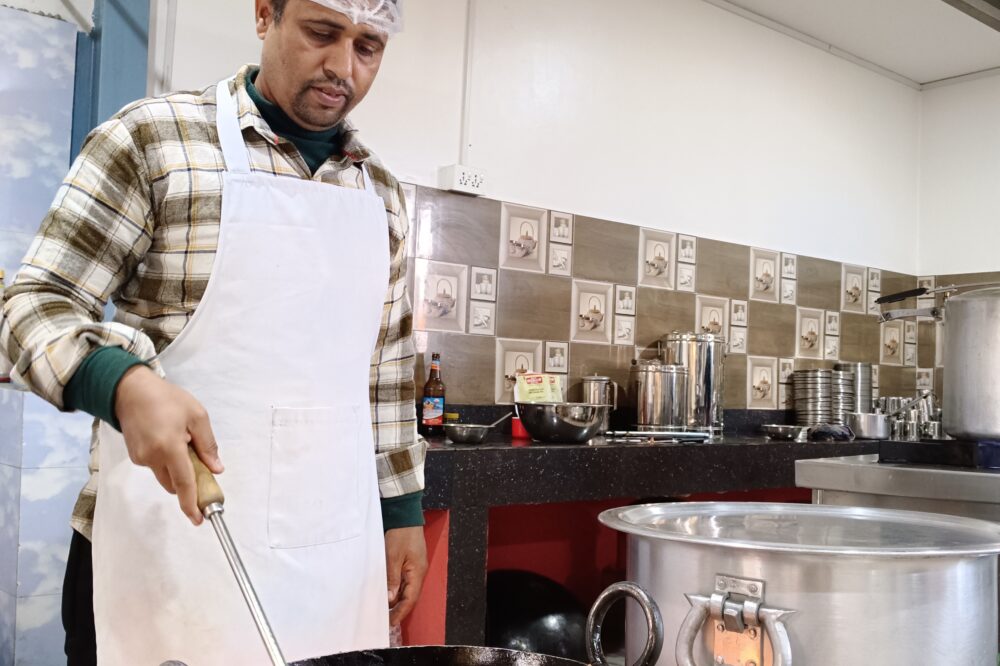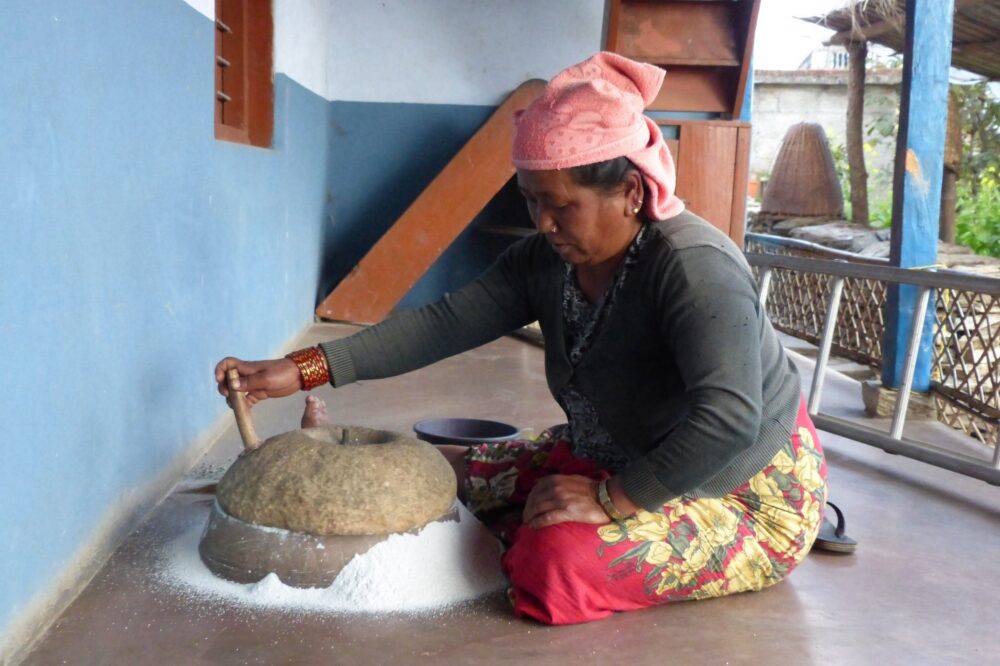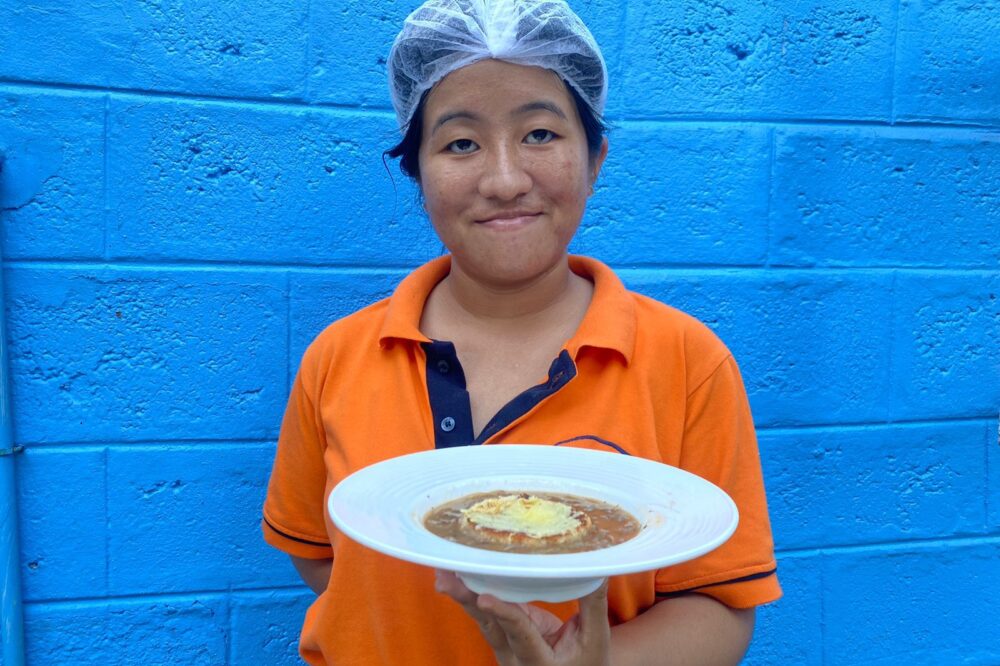Dietary habits in Nepal have shifted from locally sourced, freshly prepared foods to unhealthy patterns. The consumption of cheap junk food is harming public health, particularly among poorer populations. This leads to undernutrition and malnutrition, which are among the primary causes of illness and child mortality. Sarvaguna Foods and Kitchen provides healthy meals to schools in Pokhara, serving over 5000 children daily while promoting cultural diversity through its offerings.
As part of the Sarvaguna initiative, Cuisine sans frontières, together with Nepal Food Networks, is establishing a culinary VET. In a hands-on program, young students from low-income backgrounds receive professional training in the culinary arts.
Facts
| Projektaktivitäten | Practice-oriented gastronomy education for young students from low-income backgrounds. |
|---|---|
| Projekt-Ziel | Youth Empowerment: Increasing job opportunities for Nepali youth and improving food security in the public sector through the production of healthy meals. |
| Beneficiaries | Young people from low-income backgrounds aged 18-28. Each year, 15-20 young people are admitted to the program. |
| Projektlaufzeit | 2023-2026 |
Nepal's nutritional system, once based on locally grown and freshly prepared food, is gradually being dominated by unhealthy eating habits. The increasing consumption of inexpensive junk food has negative consequences for public health, especially given the precarious conditions in which much of society still lives. As a result, undernutrition as well as malnutrition are major causes of illness and mortality among Nepali children. The food provided in public and private schools is often inadequate.
Sarvaguna Foods and Kitchen provides high-quality, healthy and sustainable meals to public as well as private institutions such as school kitchens in Pokhara in Nepal. Through this, Sarvaguna provides more than 5'000 children with a nutritious meal every day.
Alongside this, Sarvaguna is also committed to cultural diversity and inclusion through good food, as the meals reflect the diversity of the people who prepare them. Sarvaguna also raises awareness among the Nepali people about the importance of locally and organically produced food for a sustainable food system.
As part of the Sarvaguna initiative, Cuisine sans frontières is establishing a Vocational Education Training (VET) in partnership with Nepal Food Networks. In a practice-oriented apprenticeship, young students from low-income backgrounds receive gastronomic training. The course covers both gastronomic skills and general topics such as culture, business and communication. This improves their career prospects and, in the long term, food security in public institutions in the country.
Facts
| Projektaktivitäten | Practice-oriented gastronomy education for young students from low-income backgrounds. |
|---|---|
| Projekt-Ziel | Youth Empowerment: Increasing job opportunities for Nepali youth and improving food security in the public sector through the production of healthy meals. |
| Beneficiaries | Young people from low-income backgrounds aged 18-28. Each year, 15-20 young people are admitted to the program. |
| Projektlaufzeit | 2023-2026 |



